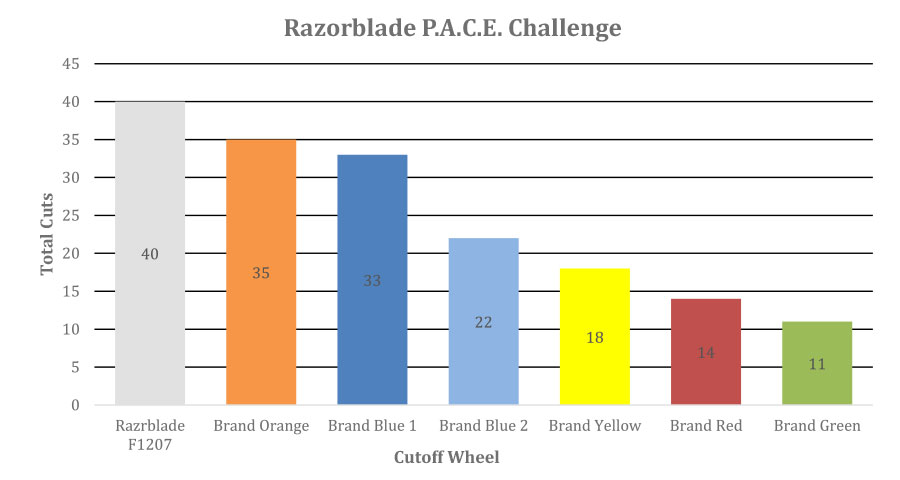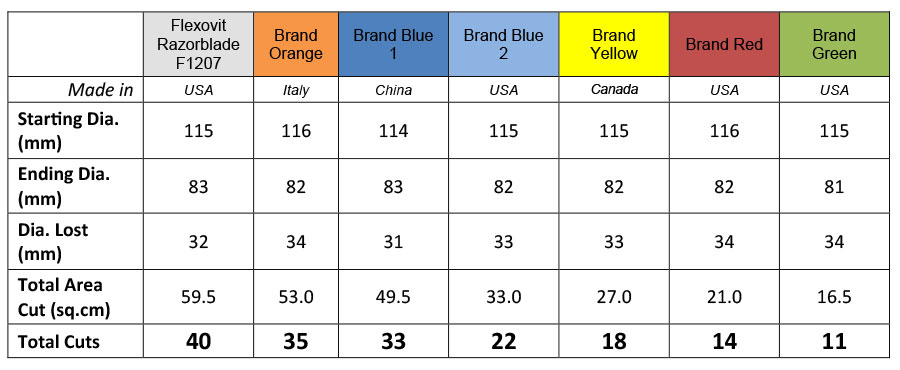What are non-woven abrasives?
What are non-woven abrasives?
Non-woven abrasives are a three-dimensional web of fibers with globules of resin and abrasive embedded into the network of fibers. Typically, the fibers are nylon or another synthetic material. The abrasive types can range from silicon carbide to aluminum oxide or ceramic alumina. Non-woven materials are converted into belts, discs, pads, flap wheels and flap discs to fit a variety of power tools.
Due to the three-dimensional structure, the finish is determined by grades rather than grit size,
and a range of grits are used to determine the grade. A finer grade offers a smoother finish, while coarse grades are good for cutting through heavy scale and debris for surface preparation.
Behavior of Non-woven abrasives
The three-dimensional network of fibers can compress like a sponge, or a spring, to help control
the rate of cut. This allows the abrasive to better conform to the surface without gouging, scratching, or causing other grinding defects. Non-wovens are a good choice for cleaning and surface preparation, as well as finishing operations such as deburring, polishing, and decorative finishing. While non-woven materials are extremely versatile, they are not the optimal choice for heavy material removal.
Workpiece materials
Non-woven abrasives are effective for use on stainless steel, standard or alloyed steel, nonferrous materials and alloys, aluminum, titanium, fiberglass, plastic and wood.
How to use
Non-woven abrasive grade, operating speed and pressure can be used to achieve the desired finish. Different materials may require different grades, speeds, and various pressures.
Abrasive grade
Coarse: For removing scale, rust, heavy deburring, flashings, paint and coatings.
Medium: For lighter surface prep and cleaning, weld cleaning, blending, light deburring.
Fine: For light cleaning, blending and finishing.
Extra Fine: For final finishing and polishing, decorative finishing.
In general, coarser grades will leave deeper scratches on the work surface, and finer grades will leave less scratches. Materials may require a coarser grade initially, followed by a progression though finer grades to achieve desired finish.
Operating speed
Non-woven abrasives are most effective between 2,000 – 9,000 SFPM, depending on the tool, the workpiece material, and the desired finish. The operating speed of the non-woven material determines the rate of cut. Lower operating speeds are suitable for cleaning, higher speeds are used for better polishing action. Because of this, variable speed tools are useful because they can be set to operate at the different speeds needed to clean, deburr, and polish. As always with abrasive products, never operate the non-woven product at speeds that exceed the maximum R.P.M. marked on the product.
Pressure
For cleaning and decorative finishing, lighter pressure ranges are used. For deburring and polishing of hard materials such as steel, more pressure should be applied. Light to medium pressure is recommended for non-woven materials, generally between 3-6 pounds. The 3-D structure of the non-woven material controls the rate of cut, so excessive pressure will not result in improved polishing or cutting rate, and will cause wear of the non-woven material.
Flexovit
Flexovit has introduced their brand new Phazer Non-Woven Flap Disc. This new flap disc is available in Type 29, 4-½ and 5 inch diameters and is available in Coarse (brown), Medium (maroon), Fine (green) and Extra Fine (blue). These discs are highly effective in surface preparation on metal, concrete, plastic, fiberglass, and wood making them one of the most versatile non-woven products. They are excellent for removing surface defects, light edge burs, parting lines, flashing, rust, oxides, corrosion, paint, and scale. Phazer has been designed with all of your maintenance, industrial and DIY projects in mind.
In addition to Phazer Flexovit also offers a wide range of non-woven materials in belts, discs, pads, and flap wheels.
USA Made For Controlled Manufacturing
Flexovit is committed to following strict manufacturing standards and safe product use. These standards are carried into each of our production processes. Flexovit’s Quality System is ISO certified, so you can count on every item being produced in exactly the same way, with the same results.
Contact us today for more information
1-800-689-3539
flexovitabrasives.com
info@flexovitabrasives.com


